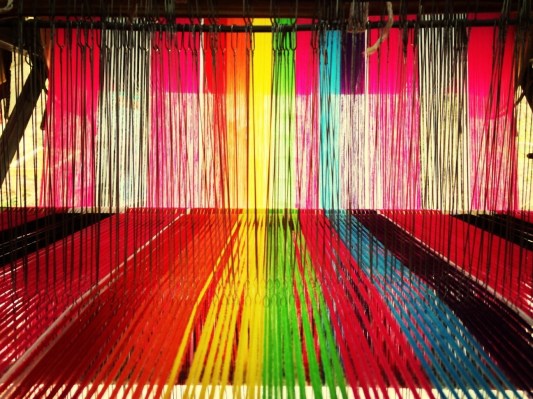Textile manufacturing takes a heavy toll on the environment, from the pesticides used to grow cotton to the polluted water created by dye runoff. Fashion’s short retail cycle also results in millions of tons of waste every year.
Plug and Play hopes that its new accelerator, called Plug and Play-Fashion for Good, will solve some of these issues by connecting textile startups with large retailers. The program, a partnership between Plug and Play, Fashion for Good, a global initiative founded by C&A Foundation, and luxury conglomerate Kering, whose brands include Gucci and Alexander McQueen, launched last week in Amsterdam.
Its first batch includes companies that create organic dyes from microorganisms (Pili-Bio) and cleaners from carbon dioxide to reduce water waste (Tersus). The full list of startups is: Agraloop, Amadou, Dragon, Dropel, ICA Bremen, MySource, MycoTex, Pili-bio, RePack, Sundar, Tersus and Tipa
Like Plug and Play’s other programs, the textile accelerator’s goal is to build relationships between startups and corporations, says Plug and Play founder and CEO Saeed Amidi. In this case, these include Walmart and Target, in addition to C&A Foundation and Kering.
“Technology can find a better way to dye clothes or a better way to grow cotton or reuse end-of-life clothing,” says Amidi. “We think the same process of accelerating software startups can be applied to fashion.”
Michael Olmstead, Plug and Play’s vice president of corporate partnerships, adds that the accelerator’s goals is to take innovation in the apparel industry beyond e-commerce companies.
“Fashion is one of the most polluting industries and we’re looking to really accelerate the transition to a very circular industry,” he says.
Some of the startups in Plug and Play—Fashion for Good’s first batch are developing new types of textiles made from plants. For example, Mycotex and Amadou both create leather substitutes from mushroom fibers, which are not only biodegradable, but may also help reduce methane emissions from livestock and pollutants from the tanning process.
Other companies, like ICA Bremen, focus on accountability in the manufacturing process. ICA Bremen uses nano-technology to create tiny tracers that allows manufacturers to keep track of how much organic cotton fiber a piece of fabric contains, an important criteria for organic certification.
One incentive for retailers is that young consumers are willing to spend extra on brands that cultivate a reputation for environmental responsibility.
“If you look at a generation that is really conscious of sustainability, it’s millennials,” Olmstead notes, “And they are obviously the ones who are spending money.”
